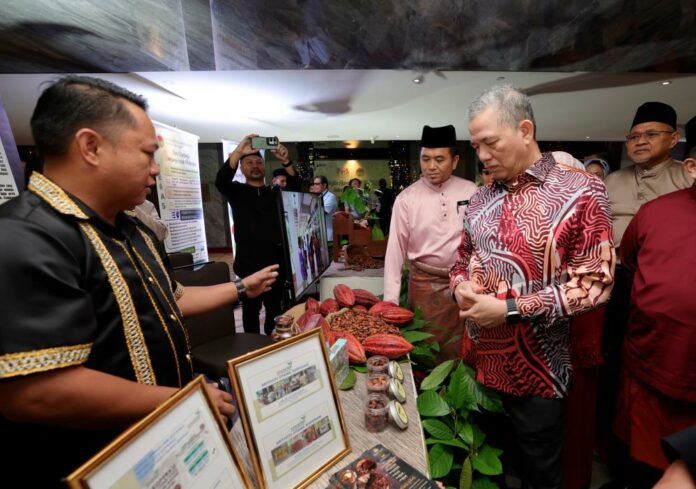KOTA KINABALU, May 15 — The Malaysian Cocoa Board (LKM) is targeting cocoa exports worth RM8 billion this year, said Deputy Prime Minister Datuk Seri Fadillah Yusof.
Fadillah, who is also the Minister of Plantation Industries And Commodities, said his ministry will soon launch domestic and international promotion programmes in order to hit the target.
“The cocoa industry in 2022 contributed RM7.82 billion of exports, an increase from RM6.87 billion in 2021,” he said at an LKM event here today. “LKM is encouraging the production of premium and single origin cocoa beans which can be sold at a higher price than the bulk beans so that the income of farmers can be enhanced.”
The minister said a chocolate entrepreneurship programme needs to be implemented to increase the number of such entrepreneurs as well as expand production and the market for their products.
“I understand that 242 participants under LKM’s guidance last year produced 103 tonnes of chocolate products worth RM6.8 million,” he noted.
Meanwhile, Fadillah said LKM and cooperative organisation Angkatan Koperasi Kebangsaan Malaysia Berhad (Angkasa) have been working together to develop cooperative activities to enhance the income of members.
“The cooperation started in 2021 with Angkasa contributing RM150,000 for the building of two mini cocoa processing plants in Sabah and Sarawak which were completed in 2022 and are already being used by cocoa farmers,” he added.
Fadillah said Asian markets are being targeted by the Malaysian cocoa industry.
“Most of our (cocoa) exports are through Johor as the processing is done in the state and the nearest importer is Singapore, apart from other Southeast Asian countries. The challenge for us is the supply of cocoa beans to our cocoa industry,” he added.
Fadillah said at present, the country imports about RM6 billion worth of cocoa beans a year and exported cocoa products worth RM7.82 billion last year, therefore various efforts are being made to reduce the dependence on imported cocoa beans.
“We are still in surplus but if we can produce locally we can bring in more (profits), so we are looking into improving not only smallholders but plantation owners so that we can produce more and import less, at the same time we can focus on end product and export more,” he said.
















